If you thought Brie was the preserve of the French, then think again.
That’s because one of the finest Bries to be found anywhere is not made in Paris or Provence, but in the Pennines.
Barncliffe Brie, hand-made by Danny and Carole Lockwood at Shelley, near Huddersfield, is unique ““ the only Brie made in Yorkshire.
It is a superb full-flavoured soft cheese with a creamy golden centre that is proving increasingly popular in restaurants, delis and farm shops.
Demand for Barncliffe Brie is so buoyant that Danny and Carole are working flat-out to keep up, making it one of the great success stories of Yorkshire’s thriving artisan food sector.
It has already won two prestigious prizes recognising its quality, and one of its most important stockists is Fodder, the award-winning farm shop and cafe at the Great Yorkshire Showground, which will be showcasing Barncliffe Brie as part of a celebration of Yorkshire cheese on September 25.
The Brie is made in the traditional way ““ and from an ultra-local source. Danny collects milk every day from a specialist herd of cattle less than half-a-mile away from his business at Barncliffe Mill. He then makes every single cheese by hand, stirring the milk, cutting the curd when the time is right and turning the Bries as they set.
Even though it’s a Yorkshire product through-and-through, there’s a real taste of the continent about Barncliffe Brie, and that’s because the milk it’s made from comes from a herd of 330 pure bred Meuse-Rhine-Issel cattle, renowned across Europe as perfect for cheese-making.
Danny said: “The milk we use is from continental cattle which are specialist cheese-making cattle, and they’re less than half-a-mile from here.
“They produce extremely good quality, high-fat, high-protein milk and on the continent the bulk of the milk from these cattle goes into cheese making because it helps it coagulate better.”
The story of Barncliffe Brie began four years ago after Danny, 59, sold his catering business and began looking for a new direction.
He said: “We had thought about making ice cream, but a lot of people are doing that, so we thought about cheese, which would be something a bit different.”
He knew that his friend, farmer Gordon Dearnley, of Bark House Farm, kept the specialist cattle and approached him.
“Gordon makes ice cream, and then I came along and said, ‘I fancy making cheese’, and he said, ‘I think you’re wrong in the head, it’s too complicated, but I’m quite happy to let you have the milk if you think you know what you’re doing’. So we got the milk supply.”
Danny then talked to another friend, cheese wholesaler Michael Lee, whom he had known for many years.
“It was Michael who said, ‘There’s nobody making Brie in Yorkshire’, and the fact that these cattle are from the continent and we’ve got the milk from them was quite a nice tie-up, and it’s a nice story to make Brie in Shelley.”
Danny had never made cheese, so went on a couple of courses, the second of which featured a French expert. Danny learned a lot about the science of cheese-making from him.
Even so, there were mistakes to be made before Barncliffe Brie was right.
“It was such a steep learning curve that you wouldn’t believe it,” said Danny. “I made some quite nice cheese, and some that wasn’t right at all. There was a lot of trial and error, because you have to tailor the production method to the equipment and premises you’ve got.”
Danny now produces about 120 kilos of Barncliffe Brie a week, working with batches of 300 to 350 litres of milk at a time.
The milk has to be warmed to a very precise temperature, and cultures introduced to solidify it and enable the ripening process to take place.
It’s painstaking work involving a lot of stirring. The Brie has to be moulded when its acidity level is just right, and there is a very narrow window of time when that happens.
Danny’s at work by 6am, and puts in a 10-and-a-half hour day making Barncliffe Brie.
It is hand-ladled into moulds, and then each cheese has to be turned three times over the following two hours to create the flat surface on each side and assist with the drainage.
The cheeses drain overnight, are removed from the moulds, and then go into a brine bath to salt them.
Danny needs plenty of patience to produce such superb Brie. The cheeses go into a ripening room, carefully temperature controlled, for 12 days to allow their distinctive white coating of mould to develop. It then takes another eight weeks for them to ripen.
But the time and effort are worth it. Danny said: “When it’s ripe it’s a nice, soft creamy brie. People say, ‘It’s got some flavour, this cheese,’ but they’re comparing it to something from a supermarket, which is a different flavour altogether.”
Barncliffe Brie’s excellence was recognised by a Gold Award at the 2010 World Cheese Awards and Silver at the 2011 British Cheese Awards.
And its popularity is growing. It’s going to farm shops, delis, and restaurants in the Huddersfield area direct from Barncliffe Mill, and Michael Lee supplies it farther afield, across Yorkshire, and into Northumberland and Lincolnshire.
Castle Howard serves Barncliffe Brie, and it has also featured on the cheeseboard at the House of Commons.
And of course, it is proving a favourite with customers at Fodder, the support of which has been a key factor in Barncliffe Brie’s success. Danny said: “Fodder has been very good. They have been very supportive and it’s nice to be associated with them because it’s such a lovely place.”
